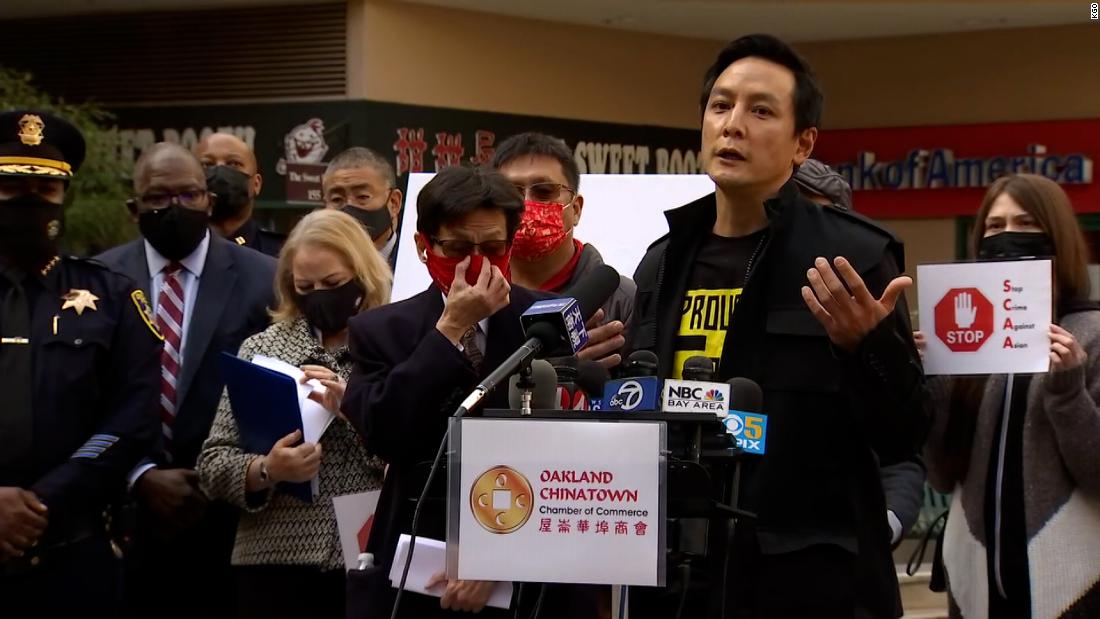At a press conference in Oakland’s Chinatown on Monday, Alameda County District Attorney Nancy O’Malley announced the creation of a special response unit focused on crimes against Asians, and particularly older Asians.
“The rapid increase in criminal acts directed against members of the Asian community, particularly Chinese Americans, who live and work in Alameda County is intolerable,” she said.
The new unit stems from two similar attacks in northern California last week, as well as a wave of crimes in Oakland’s Chinatown.
“This was a horrible and meaningless attack, and I send my deepest condolences to the Ratanapakdee family for this unthinkable pain,” said Boudin in a statement. “My heart goes out to the entire community (Asian American Pacific Islanders) for the evil and fear that this tragedy has inflicted.”
“It is not unique to Chinatown or the Asian community to see the increase in crime that we have seen across the city and the county, but we have seen in the past few weeks and months a very specific increase in crimes against Asians,” O’Malley said.
A 28-year-old man was charged with three counts of assault assault, according to the prosecution’s documents. The man was placed in a psychiatric prison on February 1 for a separate incident in which he was again assaulting people, the documents say.
How pandemic rhetoric has generated anti-Asian prejudice
The two incidents do not appear to be directly related and there is no evidence as to their motivations.
Still, they heightened concerns over the rise of anti-Asian prejudice, which has become more prominent since the world learned of a new disease in Wuhan, China.
“It is absolutely tragic and, unfortunately, this has been a trend we saw last year with regard to anti-Asian violence, and much of it stemming from the rhetoric we saw related to the coronavirus,” said John C. Yang, president and chief executive officer of civil rights organization Asian Americans Advancing Justice.
In fact, a considerable number of Asian Americans said they had experienced racism and xenophobia related to the pandemic.
Actors unite to fight prejudice
Attacks against older Asian Americans in the bay area have brought these long-standing problems to the surface.
Wu, who grew up in the bay area, said on Monday in the Chinatown area of Oakland that he offered the reward to draw national attention to the plight of Asian Americans.
“We are being crushed as a double blow. There are petty low-level crimes happening in our community. We are being easy targets,” he said. “But on a larger scale, the racist rhetoric of the pandemic has pointed us out to be ‘the reason for the coronavirus’, and so Asians across the board have been the target of racial slanders, being attacked, pushed, being spat at.”
O’Malley, the district attorney, acknowledged the particular impact of this anti-Asian rhetoric.
“Still calling it a ‘Chinese virus’, things like that, which fuels hatred and aggression and that hatred and aggression often result – sometimes they are words – but often it is committing attacks or other types of crimes” she added.
Des To, owner of Alice Street Bakery in Oakland’s Chinatown, said the recent attacks in her neighborhood could also be related to the celebration of the Chinese New Year on Friday.
“They know it is close to the Chinese New Year and people are going out to buy things and they can have more money on hand, so I believe that each year there are more thefts or something,” she told CNN. “But this year, in fact, they were worse.”
Biden signs executive order on anti-Asian bias
Joe Biden’s administration took an entirely different course of action to try to resolve these issues.
The memo instructed the Department of Health and Human Services to consider issuing Covid-19 guidelines to promote access to the language and sensitivity to the AAPI community.
CBS News reporter Weijia Jiang asked White House press secretary Jen Psaki on Monday whether the Biden government would take further steps to resolve the problem and whether the president had seen the videos.
“I don’t know if he saw the videos, but he is concerned about discrimination, actions against the Asian American community, so he signed the executive order and has been frank in making it clear that attacks, verbal attacks, any attacks in any way are unacceptable and we need to work together to face them, “she said.
“But obviously executive order is something that he did very early in his administration … because he felt it was very important to place a marker.”
CNN’s Nicole Chavez contributed to this report.
